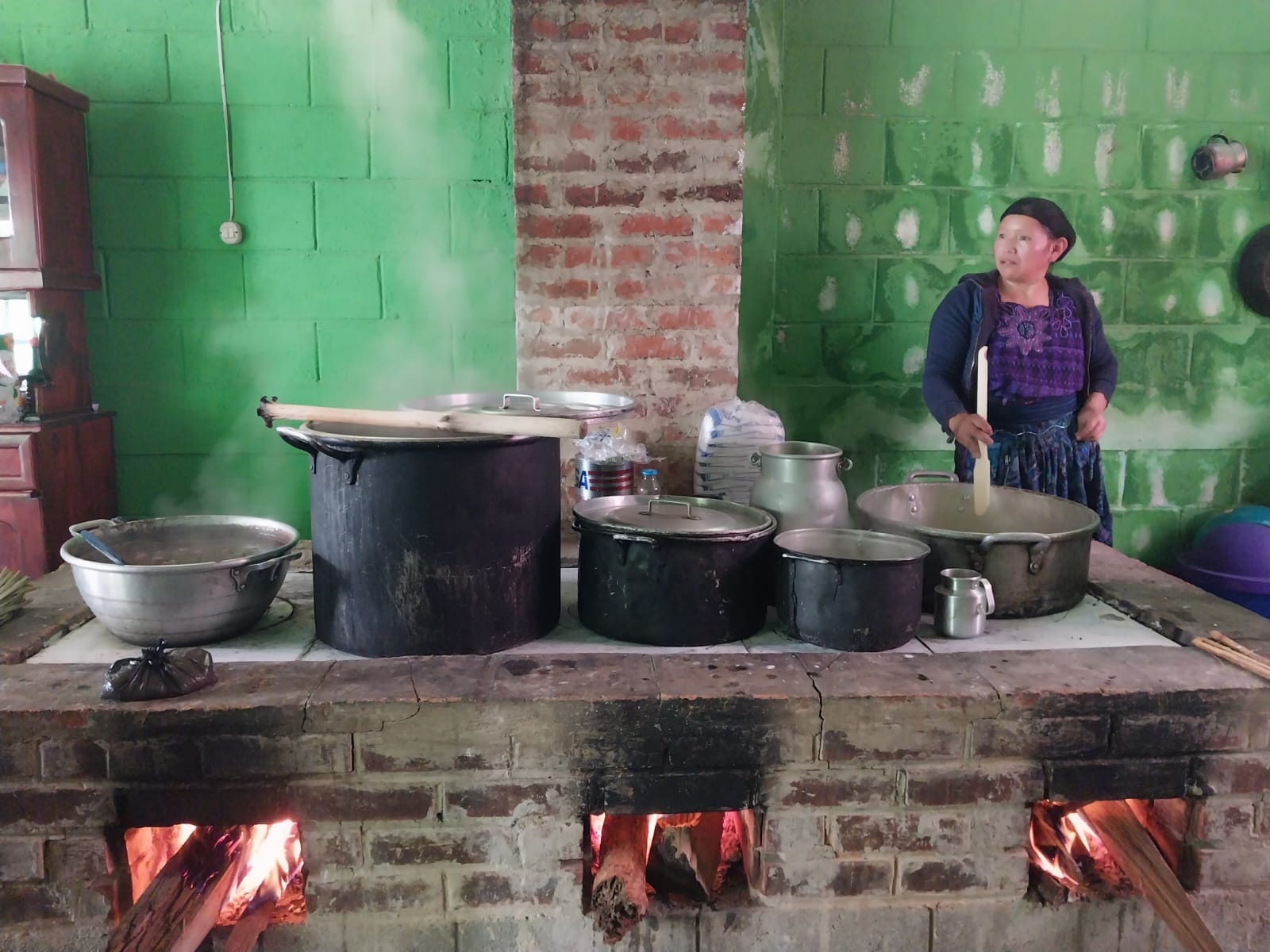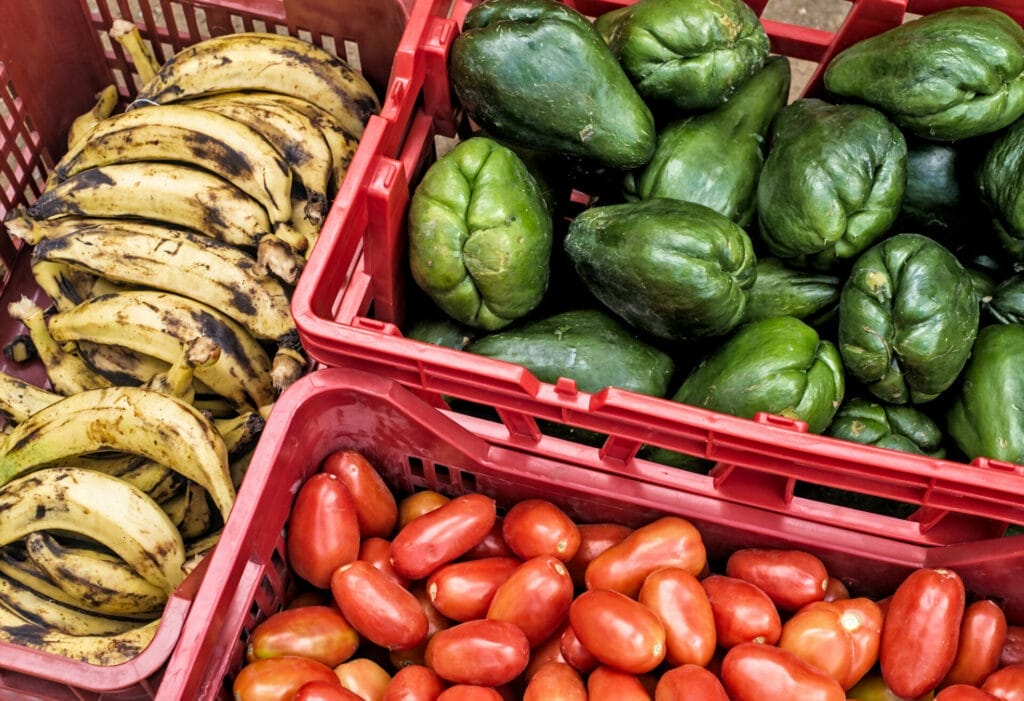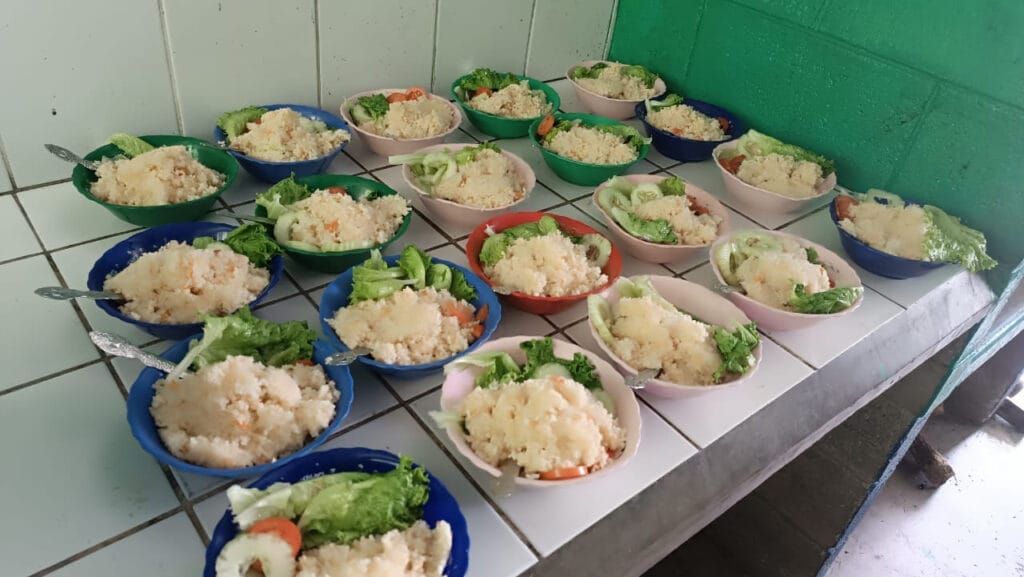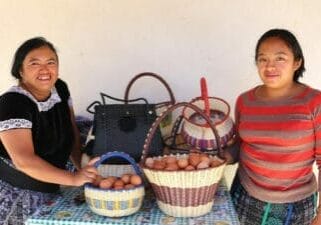News > Blog
Guatemalan School Kitchens Reopen After COVID-19 Shutdown
Published 02/26/2024 by Global Communities

By Chloe Pan
For the first time in nearly four years, school meals are once again being prepared in Guatemalan school kitchens following their total or partial closure caused by the COVID-19 pandemic. This is an important milestone for the United States Department of Agriculture’s (USDA) McGovern-Dole International Food for Education and Child Nutrition Program, UNIDOS (“United” in Spanish), led by Global Communities in the departments of Huehuetenango and Quiché. Parents in the school community are once again supporting this program at the local level, as they have in previous phases of the school feeding program implemented by Global Communities.
UNIDOS is implemented in 450 preschool and primary schools with sub-recipient Save the Children, in close coordination with the Guatemalan Ministry of Education, the Ministry of Public Health and Social Assistance, the Ministry of Agriculture, Livestock and Food, and the local school community. Over the course of five years, the program will distribute 4,010 tons of USDA-donated food, improve the literacy of 65,344 school-age girls and boys, increase their use of health and nutrition practices, improve students’ attention and attendance at school, advance the health of pregnant and lactating mothers, and support the effectiveness of food assistance through local and regional procurement of 413 tons of fresh food.

For many children in Guatemala, the food they receive at school is probably the only food they will eat all day.
Andrea Moreno, Global Communities
Gender, Communication and Program Documentation Specialist
During the pandemic, UNIDOS adjusted school meal provision to take-home rations to ensure that children had uninterrupted access to healthy, nutritious food to support their growth and development. Now, parents in the community prepare hot meals in school kitchens using program-designed and culturally accepted recipes that ensure children have balanced diets and the energy they need to concentrate on their studies. By the end of 2023, 17,562 students were receiving daily meals prepared in school kitchens, while 35,422 students continued to receive daily meals prepared at home and consumed at school.
These USDA programs are crucial for Guatemala’s children, as one in two children suffers from chronic malnutrition. Food insecurity and poverty are also most prevalent in the rural departments of Quiché and Huehuetenango, where women, girls and the broader indigenous community face additional layers of structural racial discrimination and marginalization that prevent them from achieving economic security, including reduced levels of educational attainment and literacy, higher rates of violence, and larger wage gaps compared to non-indigenous people. The progress made in addressing food insecurity during the COVID-19 pandemic would not have been possible without the continued support of USDA, national and local governments, and school communities.


Due to school closures during the pandemic, several schools require maintenance and new kitchen utensils to resume meal preparation. In the coming years, UNIDOS will work with the Guatemalan Ministry of Education to ensure that all school kitchens and storage facilities are fully operational and in good condition to resume school feeding activities.
Global Communities takes an integrated, multidisciplinary approach to its school feeding programs, focused on working with communities and local and national governments to reduce food insecurity, improve the quality of primary education, and enhance nutrition. Guatemala’s new Minister of Education, Anabella Giracca, has expressed her commitment to these efforts, especially around bilingual literacy, improving school infrastructure, and continuing school food preparation that will be invaluable to the success of the integrated UNIDOS program activities.
A Spanish translation of this story is linked here.





